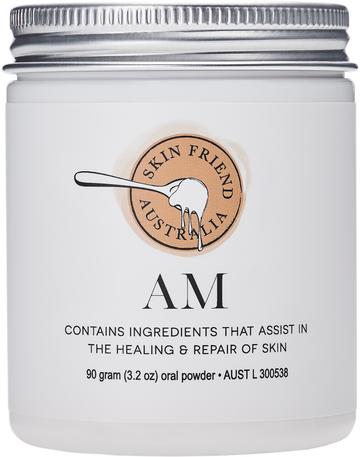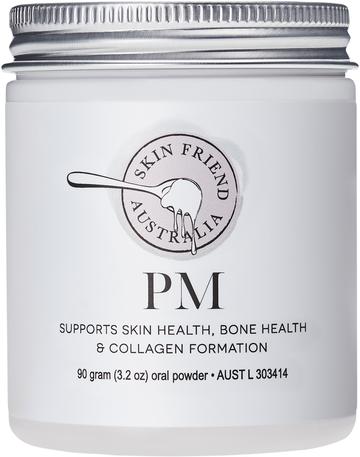
“How do I calm my itchy eczema? It’s driving me crazy!”
We receive hundreds of emails each day from people suffering with eczema and 'How do I stop the itch?!!' is one of the most common questions.
Itch of eczema can cause great pain and discomfort. At times it can feel like you're living on an ant's nest, and it can disturb sleep and prevent you from doing fun activities such as swimming and socialising. However, if you have itchy eczema there is plenty you can do about it.

Here are some tried and tested, truly useful eczema itch-busting tips that my daughter (and thousands of eczema patients) have used to successfully prevent the itch. They really work!
Top 5 natural itch-busters for eczema
1. Avoid common itchy chemicals (found in your foods, not just toiletries!)
Most eczema sufferers avoid household chemical cleaners, food additives and skin care additives and think they are living a low chemical lifestyle but their eczema persists.
Why? Because they are still eating hidden natural plant chemicals that can trigger eczema. Research shows that 52% to 74% of eczema and skin rash sufferers react to a natural food chemical called salicylates (pronounced suh-lis-a-lates).1,2 And 35% of people with eczema flare-up when they eat amine-rich foods. 1 Yet, everyone is told to eat salicylate-rich avocado and coconut, and amine-rich fermented foods but these foods will cause you to itch like crazy if you have undiagnosed chemical sensitivities.
So the first step is to avoid or limit foods containing salicylates and amines for a week and see how your skin feels. Salicylate and amine rich foods to avoid include tomato, avocado, dried fruits, corn, most fruits, mushrooms, spinach, cordial, juices and flavoured chips/crisps.3
You can access a free copy of the Complete Salicylate Food Charts when you sign up to my newsletter. Yes, it’s totally free and it’s the most helpful eczema-friendly food chart you will ever own. Plus the document shows you how to reverse chemical sensitivities. Don’t forget to read the rest of this article as the other tips are important too.
Access the free food chart here >>>
2. Drink a low salicylate alkalising juice

People with eczema tend to produce excess acid in the body (via the arachidonic acid pathway which produces skin inflammation when it’s converted to leukotrienes). So improve your acid-alkaline balance with an alkalising veggie juice which contains celery, mung bean sprouts, lettuce and carrot, and pear for sweetness (note carrot contains moderate salicylates so leave it out if necessary).
3. Hold frozen ice-packs against itchy skin

This is not going to cure your eczema but frozen ice-packs, when held against your skin, can help to calm the fire underneath your skin. It also naturally helps to prevent scratching. So you always have one in the freezer ready to go, I recommend buying two medium sized Medi-Paks and one small one. The smaller size is perfect for children, or for your neck area. Buy some cotton handkerchiefs, or cotton material, to cover the packs to avoid them sticking to your skin. Once they get too cold, simply move onto the next area of your skin and rotate them around your itchy areas one by one.
4. Take a fine calcium powder supplement

As mentioned in tip 2, people with eczema tend to have high levels of arachidonic acid in the body and this can be used to make leukotrienes which causes eczema. Refer to the Eczema Diet book diagram below.
So how can calcium assist? Calcium is highly alkalising and it can reduce acid in the body. A calcium deficiency can also produce eczema.
Calcium deficiency signs include the following:
- Eczema
- Anxiety
- Hyperactivity
- Depression
- Heart palpitations
- Food sensitivities
Calcium is one of the most underrated skin supplements on the planet, but calcium is often added to skin care products due to its anti-ageing effects. When taking calcium in supplement form, it boosts the acidity of the skin’s acid mantle, which can increase the skin’s ability to protect itself against dust mites and infections. Calcium also helps to maintain the right amount of moisturizing lipids in the epidermis layer of the skin by triggering lipid production.
What type of calcium is best for itchy eczema?
As eczema is strongly associated with salicylate sensitivity, refined (pure) calcium carbonate is the best form to take because it is the most alkalizing of all types of calcium. Calcium carbonate is a salicylate sensitivity remedy and is also salicylate-free (but not if it is plant sourced from seaweed). Pure calcium carbonate helps to quickly alkalize the blood and urine which is important because research shows the body eliminates excess salicylates when the urine pH reaches 7.5 — and supplementing with calcium carbonate helps you reach this pH, which is how it temporarily reduces salicylate intolerance. You can test your pH using a pH test kit, like this one here.
To quickly dampen the itchy, my eczema patients take Skin Friend PM which is a pure fine calcium powder plus magnesium to boost the absorption of calcium.
Avoid calcium in capsules and tablets as all capsules and tablets contain flow agents and other additives that may aggravate eczema.
5. Prevent and treat nutritional deficiencies
Most eczema sufferers have nutritional deficiencies and have no idea it is contributing to their eczema. The results from a Korean study showed how eczema patients had significantly different food preferences and eating habits compared to people with clear skin. The study found that people with eczema had significantly lower intakes of vitamin B1, vitamin B2 and vitamin E than people with clear skin.4
Furthermore, the researchers found that eczema sufferers did not consume enough calcium and zinc, both of which were remarkably lower than the recommended dietary allowance (RDA, also known as recommended daily intake or RDI) for each nutrient.4
For my daughter’s eczema, I used Skin Friend AM as it contains zinc, magnesium, biotin, vitamins B1, B3, B6, B12, vitamins C and E and other nutrients to repair the skin (plus it is free of retinol forms of vitamin A, glutamates and other nutrients which worsen eczema). It has a good ‘free from’ list you can check if you have allergies (check the free-from list here).
My top 5 itch-busters for eczema really work so try them for yourself and let me know how you go in the comments section below.
OUR PRODUCTS
Supporting research
- Loblay, R.H. and Swain, A.R., 2006, ‘Food Intolerance’, Recent Advances in Clinical Nutrition, retrieved from the Australian NSW Government website.
- Warin, R.P. and Smith, R.J., 1976. ‘Challenge test battery in chronic urticaria’, British Journal of Dermatology,vol. 94, no. 4, pp.401-6.
- Swain, A.R., Dutton, S.P. and Truswell, A.S., 1985. Salicylates in foods. J Am Diet Assoc, 85(8), pp.950-60.
- Chung, Y.M., Kim, B.S., Kim, N.I., Lee, E.Y. and Choue, R., 2005. Study of nutritional status, dietary patterns, and dietary quality of atopic dermatitis patients. Korean Journal of Nutrition, 38(6), pp.419-431.
- Sydenstricker, V.P., et al., 1942, ‘Observations on the ‘egg white injury’ in man and its cure with a biotin concentrate’, Journal of the American Medical Association, vol. 118, no. 14, pp. 1199–200.
- Pasmans, S.G., Preesman, A.H. and Van Vloten, W.A., 1998. [Pellagra (deficiency of vitamin B3 or of the amino acid tryptophan): a disease still extant in the Netherlands]. Nederlands tijdschrift voor geneeskunde, vol. 142, no. 33, pp.1880-2.







 Nothing will be posted on your behalf.
Nothing will be posted on your behalf.

